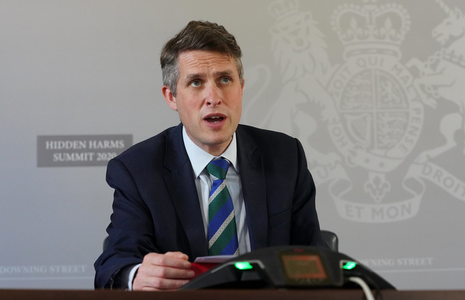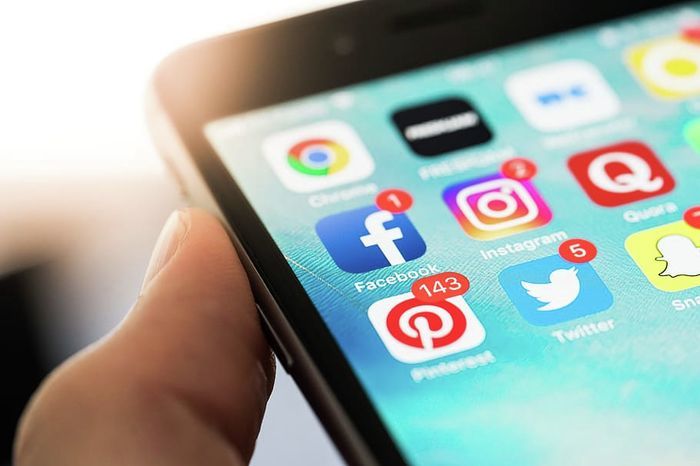Forget free speech – free learning is what’s really at stake at our universities
In light of Education Secretary Gavin Williamson’s plans to appoint a Free Speech and Academic Freedom Champion, Louis van-Boxel-Woolf argues that a focus on freedom of speech overlooks the real issue at the heart of no-platforming: freedom to learn.

Do universities need a new ‘Free Speech and Academic Freedom Champion’? Gavin Williamson, the Education Secretary, thinks so. But he’s wrong. If universities need any kind of Champion, a Free Learning one would be better. Free speech is alive and well, but students’ learning is coming under attack.
As Williamson presumably knows, the right to free speech is certainly not the same as having the right to speak wherever we want to. I have no right to barge into his home and lecture him on education policy, or anything else. My right to free speech gives me no right to a particular platform. If I want one, I either have to create it myself or be lent one - thank you, Varsity.
Similarly, Jordan Peterson had no right to a visiting fellowship at the Divinity Faculty before his invitation was rescinded. Amber Rudd had no right to speak to the UN Women Society at Oxford before she was disinvited. Donald Trump can say broadly what he likes, but Twitter is under no obligation to help him do so. And so they permanently suspended him once they had had enough. In all these cases and more, the right to free speech was not infringed. It’s simply that others exercised their right to provide a platform to people of their choosing.
“Speech has never been freer, in both senses of the word ... there is little to no limit on what we can say or who we can have as a guest.”
Speech has never been freer, in both senses of the word. Thanks to the internet, anyone can put virtually anything out at minimal cost. Last year, two new podcasts were set up every minute. That’s a lot of speech and, depending on the law and distribution channels, there is little to no limit on what we can say or who we can have as a guest. Indeed, the tidal wave of fake news and its impact on everything from vaccine uptake to election results would lead some to say that speech at the moment is perhaps a little too free, with not only controversial but also downright daft and even dangerous views available from anywhere with an internet connection, often without any context or scrutiny.
We have a different kind of problem at universities up and down the country. Yes, Gavin Williamson is engaging in obvious vote-grabbing; no, we shouldn’t pretend that free speech means inviting anyone and everyone; and no, free speech doesn’t mean that someone attacked by bigots should suck it up in silence. But it is hard to deny that we students often use the right to choose who gets our platform in silly ways.
We are not Facebook or Twitter. True, universities and student societies put out important research and can influence society at large. But we don’t decide what billions of people see on a daily basis like Big Tech does. Being no-platformed by a company like YouTube is something of a bigger deal than being disinvited by us.
If we think that Jordan Peterson is a sexist or a transphobe, it is hard to see how withdrawing an invitation from the Divinity Faculty helps us. His 3.5 million YouTube subscribers could fill up every single lecture theatre in Cambridge combined hundreds of times over. If he wanted to, he could sleep on the wad of cash he has made from his book sales. Not having him here at Cambridge makes no difference to his reach whatsoever; all it does is deprive students of a chance to learn and grow, to question him, to argue with him, and to explain to him where and how they believe he ought to adjust his views.
“[The students] would have been better off disagreeing with her in the course of her appearance, not trying to stop it in the first place.”
It might be said that I, like Gavin Williamson, am conflating two issues. We can argue with, and maybe even learn from, an opponent simply by talking to them, but that doesn’t have to mean employing them on the university payroll. But the tendency to disinvite those with whom we disagree affects panel and discussion events, too.
Amber Rudd has already been mentioned. But even people like Peter Tatchell, a veteran LGBT rights campaigner whose courage in the face of physical violence speaks for itself, and Germaine Greer, the long-time feminist, have faced barriers in speaking at university events. 3,000 students at Cardiff University signed a petition protesting Greer’s appearance. They would have been better off disagreeing with her in the course of her appearance, not trying to stop it in the first place.
I first became concerned that free learning was threatened by ‘cancel culture’ when I received an email from the MML faculty in 2018. It contained a link to a petition criticising the Oxford Union for inviting Alice Weidel, a right-wing German politician. In the end she didn’t go. Was her right to free speech curtailed? No. She is still in post and appears regularly in the German media. Were members of the Oxford Union robbed of a chance to challenge her and, who knows, maybe even go viral with a rebuttal that could have changed somebody’s mind somewhere? Yes, I think so.
It is time to restate the point of university, as Dr Arif Ahmed has argued. Learning and developing mean being ready to listen and face up to our opponents, not shying away from them. It is time to cut through all the distracting and moralising rhetoric about ‘free speech’ and focus on free learning instead. No-platforming a potential speaker, especially a high profile one, is tantamount to no-platforming ourselves.
 News / Caius mourns its tree-mendous loss23 December 2025
News / Caius mourns its tree-mendous loss23 December 2025 News / Clare Hall spent over £500k opposing busway 24 December 2025
News / Clare Hall spent over £500k opposing busway 24 December 2025 Comment / Yes, I’m brown – but I have more important things to say22 December 2025
Comment / Yes, I’m brown – but I have more important things to say22 December 2025 Comment / The ‘class’ of Cambridge24 December 2025
Comment / The ‘class’ of Cambridge24 December 2025 Interviews / Politics, your own way: Tilly Middlehurst on speaking out21 December 2025
Interviews / Politics, your own way: Tilly Middlehurst on speaking out21 December 2025








